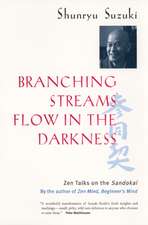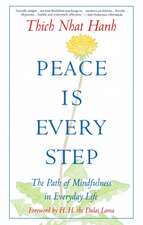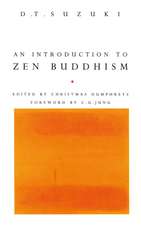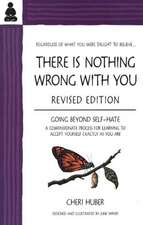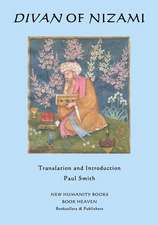Zen Poems of China & Japan: Evergreen Book
Autor Ikemoto Stryk Editat de Lucien Stryk, Takashi Ikemotoen Limba Engleză Paperback – 31 dec 1993
Capturing in verse the ageless spirit of Zen, these 150 poems reflect the insight of famed masters from the ninth century to the nineteenth. The translators, in collaboration with Zen Master Taigan Takayama, have furnished illuminating commentary on the poems and arranged them as to facilitate comparison between the Chinese and Japanese Zen traditions. The poems themselves, rendered in clear and powerful English, offer a unique approach to Zen Buddhism, “compared with which,’ as Lucien Stryk writes, “the many disquisitions on its meaning are as dust to living earth. We see in these poems, as in all important religious art, East or West, revelations of spiritual truths touched by a kind of divinity.”
Preț: 77.13 lei
Nou
Puncte Express: 116
Preț estimativ în valută:
14.76€ • 15.41$ • 12.21£
14.76€ • 15.41$ • 12.21£
Carte disponibilă
Livrare economică 15-29 martie
Preluare comenzi: 021 569.72.76
Specificații
ISBN-13: 9780802130198
ISBN-10: 0802130194
Pagini: 208
Dimensiuni: 136 x 209 x 13 mm
Greutate: 0.24 kg
Ediția:Evergreen.
Editura: Grove Atlantic
Seria Evergreen Book
ISBN-10: 0802130194
Pagini: 208
Dimensiuni: 136 x 209 x 13 mm
Greutate: 0.24 kg
Ediția:Evergreen.
Editura: Grove Atlantic
Seria Evergreen Book
Textul de pe ultima copertă
Capturing in verse the ageless spirit of Zen, these 150 poems reflect the insights of famed masters from the ninth century to the nineteenth. The translators, in collaboration with Zen Master Taigan Takayama, have furnished illuminating commentary on the poems and arranged them so as to facilitate comparison between the Chinese and Japanese Zen traditions.
Descriere
Capturing in verse the ageless spirit of Zen, these 150 poems reflect the insight of famed masters from the ninth century to the nineteenth. The translators, in collaboration with Zen Master Taigan Takayama, have furnished illuminating commentary on the poems and arranged them so as to facilitate comparison between the Chinese and Japanese Zen traditions. The poems themselves, rendered in clear and powerful English, offer a unique approach to Zen Buddhism, “compared with which,” as Lucien Stryk writes, “the many disquisitions on its meaning are as dust to living earth. We see in these poems, as in all important religious art, East or West, revelations of spiritual truths touched by a kind of divinity.”









![The Way of Zen =: [Zendao]](https://i0.books-express.ro/bt/9780375705106/the-way-of-zen.jpg)
